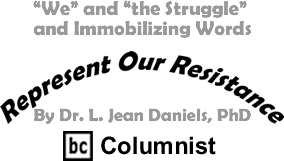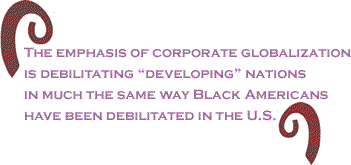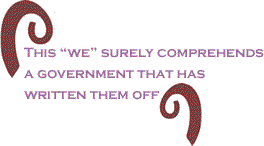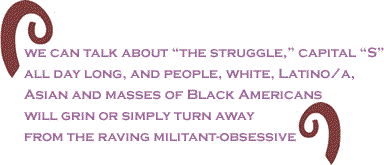
|
|||||||||||||||||||||
|
||||||||||
|
The current issue is always free to everyone If
you need the access available to a |
||||||||||
 |
||||||||||
 |
||||||||||
�In the thirteen years preceding Reaganomics, income inequality in the United States was shrinking.� Social welfare programs, unions, labor laws, anti-discrimination laws and the like were raising the wealth of the lower income population, and progressive tax structures were redistributing wealth from the upper income brackets down,� writes Antonia Juhasz in The Bush Agenda: Dividing the World One Economy at a Time. You can see the problem already.� Reagan and his gang, some of the same players from the Nixon era and some still with us today in King George�s court, did not like this idea of progress. Juhasz continues, Reagan �gutted social welfare programs, shifted the tax burden from the wealthy to middle and lower income groups, poured enormous sums of money into the military-industrial complex, and reduced labor protections.� According to Juhasz, �the poorest Americans lost more than 10 percent of the income pie, while the wealthiest gained almost 20 percent.� Reagan went on to create a �legacy of destruction� with the WTO gutting the life of �developing� nations.� The emphasis of corporate globalization is debilitating �developing� nations in much the same way Black Americans have been debilitated in the U.S. Why do I describe this phenomenon as debilitating?� Before I answer this question, I want to refer to the �developing� countries transition from national liberation struggles to free themselves from imperialist/colonial rule to new struggles against Empire.� In Michael Hardt�s �From Imperialism to Empire,� Empire refers to �a wide network of collaborating powers, including the dominant nation-states, supranational institutions like the IMF and World Bank, the major corporations, some of the major NGO�s and others.�� The struggles of the nation-states like Argentina, Venezuela, Brazil, Zambia, Nigeria and others, against this new form of domination and exploitation, in the long run, �favor the increase of power of the multitude,� writes Hardt.� These nation-states, while �aristocracies� within the Empire, nonetheless pose the threat of death to the Empire.� �The ultimate significance of progressive alliances of subordinated nation-states, in other words, will be realized only to the extent that they facilitate the eventual destruction of Empire (including the aristocracies themselves) and allow the multitude to create a democracy from below.�
While thinking in terms of the �multitude� rather than in terms of �people� and a �national identity,� Hardt explains, we can �conceive of a non-national liberation - a form of struggle both below and beyond the national people to create regional and even global movements of interdependence.� I am reading Hardt�s analysis of this concept of �multitude,� this struggle for interdependence that ultimate spells the end of Empire and I think, of course, about the �struggle� of Black America, particularly since the fallout of the Reagan era.� I am wondering who�s the �we� when some of us speak about Black Americans and what�s �the struggle� �we� are engaged in now - assuming that the �we� is different from the �we� of the 1960�s and the �struggle� is different from the struggle for Civil Rights.� In saying �we� Blacks are in �the struggle� here in the United States, are we talking about those Blacks who get up in the morning or evening to arrive at low-paying jobs and who know on Monday that Friday�s check is already accounted to pay the utilities or to add to last Friday�s check in order to pay the rent? Are we talking about the �we� who, socially marginalized, battle with the police and the criminal justice system or who battle with Workforce personnel to get WIC or medical assistance funds or job training? We must remember that Clinton, in the 1990�s, helped all his liberal and progressive friends solidify their gains or just gain, while with a smile and southern drawl, he picked up a pen and dumped some Black folks in the waters of Lake Pontchartrain.� The Bush Administration just finished the task of drowning most of them and sending others on an endless journey of �exile.�� Are we, that is, the we who often do the speaking about the collective �we,� are we conscious of those for whom clicking on to the Black Commentator or Counterpunch websites is a foreign way of encountering news? This �we� surely comprehends a government that has written them off.� But do we consider if they understand themselves in terms of what Hardt calls the �multitude�? When, often, too many of us allowed to speak (and divided among ourselves into middle-class, conservatives, and progressive and who know what else) have come to accept narrative representations of �the struggle� as the drive toward �success� in terms of financial assets within the Empire, do we see ourselves as having any connection to the struggles of the multitude of people of darker hue elsewhere and here at home, in the Empire? Do some of us, instead, see ourselves as the lucky, the �aristocracy� over and above the �multitude� of Blacks who answer whutsup with �nuttin�� or �just tryin� to make it� and the poor, poor, poor Black, Latino/a, Asian outside the physical state of the U.S.?
A nation like the United States, that has long embraced violence as a means of achieving everything it claims to possess - material resources, land, wealth, innocence, values and beliefs - cannot abide the memory of those who would dare to remember this lost origin.� This nation anesthetizes such memory.� Consequently, we, the collective we of Black Americans have become immobilized with and in words.� We really cannot speak because we are barely heard.� This is what we have to consider, too, when we think about the �we� and �the struggle� and some idea of �unity� or �multitude,� for it is no accident that forty or so years later, some of us are struggling to justify the continual need for �the struggle� itself.� This is why it is easy for a journalist or community organization to present a African or Latina or Asian speaker to an audience to discuss the struggle against the privatization of water and, at the same time, the journalist or community organization cannot see to present a Black woman or man to discuss how the same corporations privatizing water somewhere else have already infiltrated the inner cities in the U.S. with guns, drugs, and prison cells, especially designed to debilitate Black people, until most of us cannot remember anything but a minute-to-minute small �s� struggle with some government representative - or worse, with ourselves who deliberately or accidentally get in the way of �just tryin� to make it.� These are the �lost,� going the way of the U.S.�s �lost� origins - as lost as the memory of the Reagan era and its debilitating effects. And we can talk about �the struggle,� capital �S� all day long, and people, white, Latino/a, Asian and masses of Black Americans will grin or simply turn away from the raving militant-obsessive.� Bush, King George, wasn�t joking when he repeated that he was �working hard.� Running the government, he said, was �hard work.� He has worked hard to make sure that some of us have worked to aid and abet the Empire in the development of corporate interests.� I have worked to educate new future leaders for middle-management or executive corporate positions most of whom rejected my presence and the assignments that forced them to read Black thinkers and writers - a deplorable hurtle to jump, if not pull backward, momentarily, on the way to �success.� Even in polite, mixed company, knowledge about the individual or collective black experience is shunned for fear of dredging up memories of the �lost.������
Those of us among the �we� who are �militant obsessive,� bohemian teachers and professors who speak about �the struggle� with a capital �S� and who talk about the debilitating effects of globalization on Black Americans, along with the multitude of �developing� nations, are immobilized by the words of whites who cannot afford to remember the �lost.� We are hit from the bottom, from the top, from the sides, until we seem as if we are drowned out, sinking still, in the metaphor of Katrina. We are seen as too close to the �failures of imperialism,� to use Hardt�s words and suggestion of an abysmal end of Empire - from within.� Our thoughts, our words, can�t be trusted.� Our experiences, therefore, must be ignored, considered inferior.� Only the chosen few really speak because they echo quite well immobilizing words. Can we afford to remain immobilized by letting the �lost� remain �lost�? Then what part of our historical heritage of opposition do we not understand? So who are �we� now and what is �the Struggle� all about?� How will this �we� and �the Struggle� aggressively connect to the struggles of the multitude around the world.� Let us think about this with each other.� But be quick about it! There are people thinking about this business of a Black �we� and a �the struggle,� too.� And they never sleep!� BlackCommentator.com Columnist Dr. Jean Daniels writes a column for The City Capital Hues in Madison Wisconsin and is a Lecturer at Madison Area Technical College, MATC. Click here to contact Dr. Daniels.� |
||||||||||
| August
2, 2007 Issue 240 |
|
| Printer Friendly Version in resizeable plain text format format |
 |
 |
 |
| |
| |


























 ��
�� 






